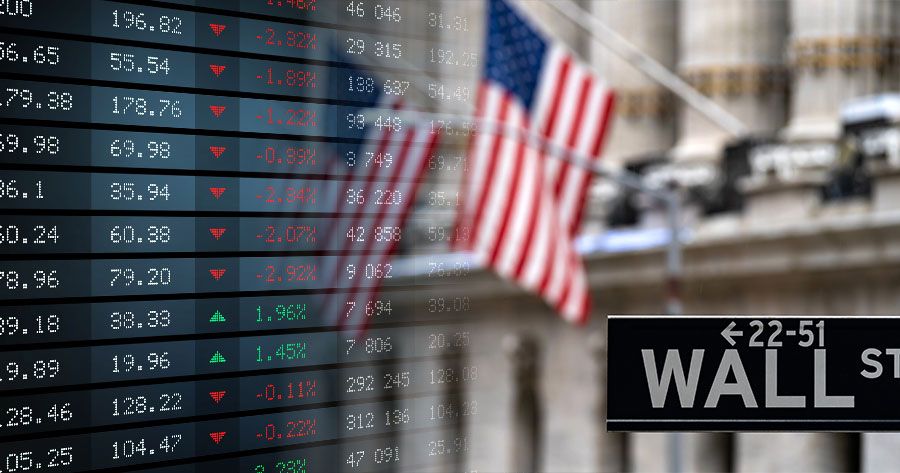U.S. stock futures nosedived following President Donald Trump’s announcement of comprehensive tariffs starting at a minimum of 10%, escalating up to higher rates for certain nations, thereby intensifying the potential for a global trade war potentially affecting the already struggling U.S. economy.
Futures linked to the Dow Jones Industrial Average fell by 1,047 points, a decline of 2.48%, while S&P 500 futures plunged by 3.65%. Nasdaq-100 futures saw a noteworthy loss of 4.49%.
Several big-cap stocks took a hit during after-hours trading; notable companies like Nike and Apple experienced about 7% declines. The technology sector faced a broader retreat as investor caution increased, with Nvidia slipping 4.5% and Tesla sliding 6%.
On Wednesday, the Dow Jones Industrial Average (DJIA) closed at 42,225.32, up 235.36 points (+0.56%), while the S&P 500 ended at 5,670.97, gaining 37.90 points (+0.67%). Meanwhile, the NASDAQ finished at 17,601.05, rising 151.15 points (+0.87%).
President Donald Trump introduced a sweeping policy of global reciprocal tariffs during a White House event. He established a baseline 10% tariff on all imported goods, with certain nations facing even higher rates.
In his statement, Trump conveyed a sentiment that allies can sometimes be more challenging than adversaries in terms of trade policies.
“In many cases, the friend is worse than the foe in terms of trade,” said the president.
At the official announcement held in the Rose Garden, he showcased a board displaying the new tariffs imposed on various nations. These tariffs varied significantly, ranging from 10% to as high as 50%.
Thailand was notably highlighted as facing a 36% import tariff from the U.S., after it was perceived to be imposing a 72% rate on American products. With this measure from top to bottom, Thailand stood 14th in rank among those countries affected by these elevated tariffs. However, considering the midpoint between 10-50%, Thailand is just slightly above the middle of the pack.
China, who already has 20% in place before the reciprocal tariffs hit, is slapped with 34%. Meanwhile, the European Union took 20% levies.





